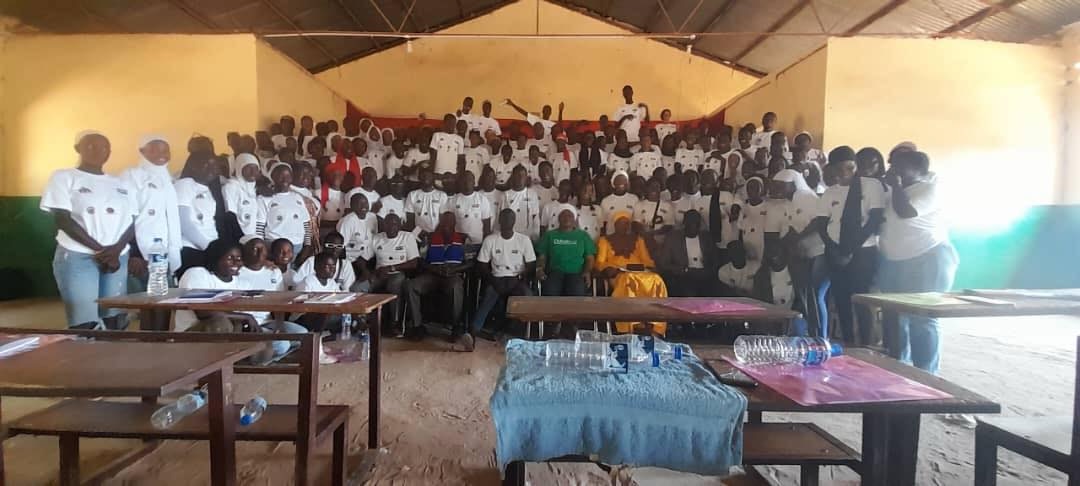Growing up in a small town often comes with its own unique set of limitations—fewer educational opportunities, less exposure to international perspectives, and often, a limited network to tap into when pursuing higher aspirations.
However, these limitations didn’t stop Maya, a bright young student from a small village in Eastern Europe, from dreaming big.
With a passion for engineering, Maya set her sights on studying in Germany, known for its world-class universities and innovative approach to technical education. After months of preparation, exams, and countless application forms, the news she had been waiting for finally arrived: she was accepted to a renowned university in Germany.
But little did Maya know, the journey had only just begun.
The Road to Acceptance
Maya had always been fascinated by how things worked—how bridges stood tall, how machines operated, and how technology was shaping the future. The internet became her window to the world, where she researched universities and programs in countries known for engineering excellence. Germany stood out, not just for its top-tier education system but also because many of its universities offered courses in English, even for international students. And with tuition being either low or non-existent for public universities, it seemed like the perfect choice.
After securing her place at one of Germany’s top universities, Maya spent weeks preparing for the move. From gathering all the necessary documents to brushing up on her German language skills, everything seemed to be falling into place. Her friends and family threw her a farewell party, celebrating the achievement that was uncommon in their small town. Maya was on her way to becoming an inspiration to many others back home.
The Residence Permit: An Unexpected Hurdle
Upon arriving in Germany, Maya quickly settled into her new life. Classes began, and she was excited about the learning opportunities ahead. However, before she could fully immerse herself in her studies, there was one final administrative task left to tackle: securing her residence permit.
As a non-EU citizen, Maya knew she needed a student visa to stay in Germany, but what she didn’t anticipate was the complexity of obtaining her residence permit. While her student visa allowed her entry into the country, it was only valid for a limited period. To continue her studies, she had to apply for a residence permit for study purposes, a process that turned out to be far more challenging than she had expected.
Challenges of Navigating German Bureaucracy
Maya’s first appointment at the local immigration office, the Ausländerbehörde, was eye-opening. The list of required documents seemed endless: proof of sufficient financial means, health insurance, proof of enrollment, accommodation details, and more. The rules were strict, and the office itself was always packed with students and workers from all over the world, each waiting their turn to navigate the bureaucratic maze.
Despite having most of her documents in order, Maya ran into an unexpected issue—her blocked bank account. International students are required to have a blocked account with a specific amount of money, proving that they can support themselves while studying. However, due to a delay in her bank’s processing, her funds weren’t accessible in time for her appointment. This led to her residence permit application being delayed.
With each day, Maya’s stress grew. Without the permit, she could not stay in the country legally beyond her visa’s expiry. Her studies were at risk, and the uncertainty started to weigh heavily on her. She sought help from fellow international students who had faced similar issues, and many of them reassured her that delays were common but resolvable. Nonetheless, Maya couldn’t shake off the fear of being forced to leave the country she had worked so hard to come to.
After weeks of back-and-forth trips to the immigration office, Maya’s persistence finally paid off. The blocked account issue was resolved, and she submitted all the necessary documents to prove her financial stability and student status. Still, it took several more weeks for her residence permit to be issued. The waiting period, though frustrating, taught Maya the importance of patience and preparation when dealing with complex immigration systems.
When she finally received her residence permit, Maya was overcome with relief. She could now focus fully on her studies without the constant fear of having to leave Germany.
Looking Ahead: Lessons Learned
Maya’s story is a testament to the determination of students from small towns or countries with limited opportunities, showing that even the most challenging paths can lead to success. Her experience with the German immigration system, while difficult, was not unique. Many international students face similar challenges when moving abroad for their studies.
For prospective students looking to study in Germany, Maya has some key advice:
Start early: Whether it’s applying for a visa or setting up a blocked bank account, beginning the process well in advance can save you a lot of headaches down the road.
Stay organized: Keep track of all required documents and make multiple copies. German bureaucracy is thorough, and having all paperwork ready can prevent delays.
Use reliable resources: Familiarize yourself with the process by consulting trusted sources like Germany-Visa.org. This article on residence permits provides comprehensive information on the types of permits, required documents, and step-by-step instructions to help international students navigate the process smoothly.
Don’t hesitate to ask for help: Whether it’s from fellow students, the university’s international office, or even online communities, there’s always support available for students navigating the permit process.
Maya’s story is just one of many, proving that even the most daunting bureaucratic processes can’t hold back those who are determined to follow their dream





